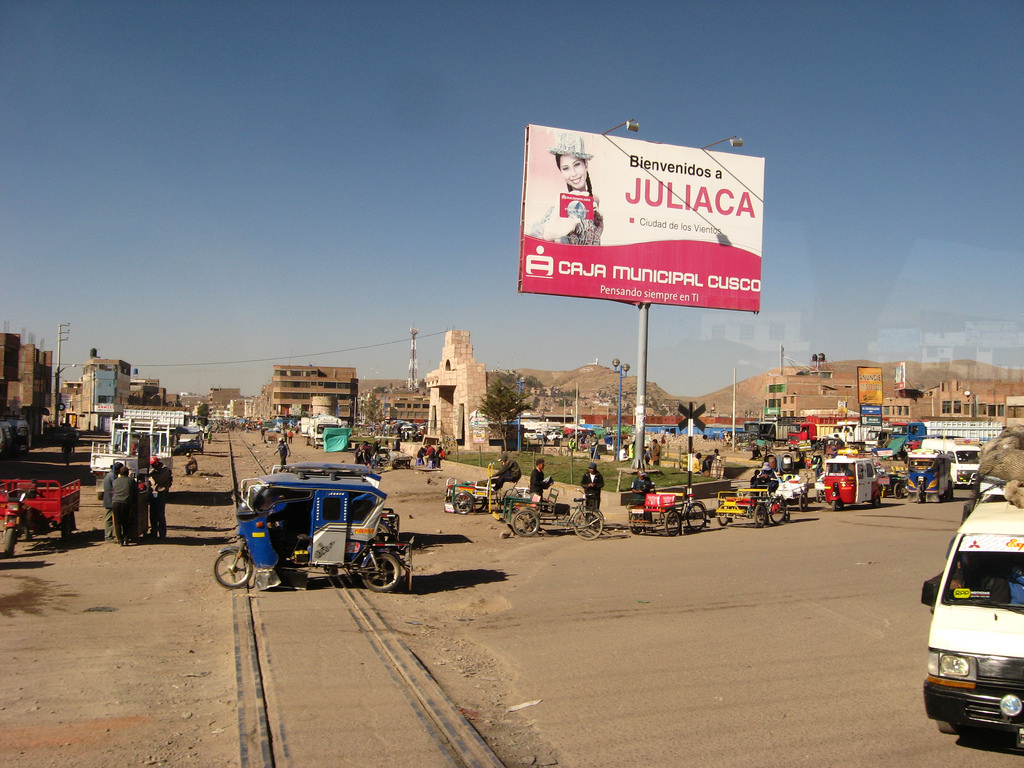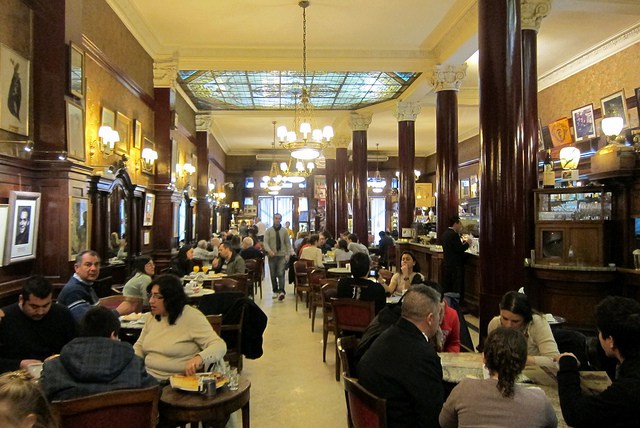Understanding civil society and civic culture in Latin America: Southern Peru and Buenos Aires
[This is a re-post of a small article I wrote in 2013 in a previous blog. I still think it's relevant, so I am migrating it to this website]
This past month, I have been traveling through Peru, my home country. I am currently working on my dissertation on a form of “civility” (Ikegami 2005) in the capital city of Lima that has been developed in lieu of a proper civil society. Lima is Peru’s most important city; it is its economic and political center, as well as a home to about 10 million people or more than 30% of Peruvian citizens (which includes those living in Peru and abroad). This is a research project I have been working on for a while because I believe that whereas in Lima there are great social problems (great social divisions, political apathy, a distrusted and ineffective state, blatant racism, great economic rifts between the haves and have-nots, etc.) Limeños have strong elements of “Peruvian pride” that allows them to at least feel that they share something with one another; even if they do not feel each other as being equal, they do sense a degree of shared commonality in things like food, football (soccer) or pride in the country’s history and geography (Machu Picchu and the Incan past being the ultimate objects of national pride). Whilst the case of the city of Lima is my the focus of my work, in this article I would like to focus on what civil society is and what happens when it does not exist. To do this, I would like to refer to another case in Peru, that of the cities of Puno and Juliaca, and later compare them to the case of the city of Buenos Aires, Argentina.
Puno and Juliaca are a sight to behold. The department to which both cities belong (the department of Puno in southern Peru) is relatively poor “officially”. The problem lies on the fact that in both Puno and Juliaca one of the main economic activities (if not the main one) is a non-taxable one: smuggling. The population of both cities benefit economically from smuggling goods (particularly cheap gas) from Bolivia (the boundary between Peru and Bolivia is within a 3 hour car ride from both cities). In both cities, gigantic markets of smuggled (and non taxable) goods can be seen on an everyday basis. Additionally, people sell smuggled cheap gas on an individual basis by the liter or gallon. This situation gets reflected on the fact that the municipalities and local governments of both cities do not have enough money to fix roads, build plazas or create educative infrastructure with well paid teachers in either of these cities. The most salient visual shock of both of these cities is the fact that at least 80% of all residential buildings in the two cities are unfinished: the first floor and second floor is usually almost completely done, but a third floor is left “unfinished” with bricks and iron strips exposed. Why? Because when left unfinished the owners of such buildings do not have to pay residential or commercial property taxes to the cities. Thus, both cities generally look unfinished not only by the lack of asphalted roads or not-cared-for parks, but mostly because of the tax-avoiding half-built brick-colored buildings that populate the urban space of Juliaca and Puno.
In doing this, people from these cities exercise a form of rebellion against the state power. Interestingly, there are good historical reasons for the people of these places in southern Peru to do this. The department of Puno, until very recently, has always been “left out” by a state that did not invest in infrastructure, good education or almost anything for people from this southern Andean population. However, the lack of the presence of solid state institutions does not mean that in lieu of them people usually respond like the people of these two cities.
According to Alexis de Tocqueville’s impressions of 19th century America (Tocqueville 1835-40), Americans discussed and organized themselves for the “public good”. In other words, Americans had a civic culture that allowed them to think of a public good (with trials and tribulations that came with many times not agreeing with one another) even if a central state did not provide it. More recently, Robert Putman (1994) argues that “civic culture” (a concept he borrows from Tocqueville) is central in order to understand why civil society appears in some places and not in others. In looking at the historical and cultural differences between the north and south of Italy, Putman argues that whilst the south was the center of a kingdom (the kingdom of Naples) that had vertical reign as its source of organization, the cities in the north, responding to a problem of violence generalized in the medieval world, resorted to making communes, guilds, etc. In the north, thus, oaths of good will and mutual help became common and lasting since the 13th century. This made the north cities of Italy have a more generalized civic culture that was attached to the associational life of these cities than in the south. Thus, through the theories of both Tocqueville and Putman, we can see that Juliaca and Puno do not have a civil society simply because people do not discuss or organize themselves for the public good. The economic development of the populations of both cities are restricted to personal or family-based capital entrepreneurships that do not have a more social dimension. In a way, the case of these cities show what happens when a hyper-capitalistic free market without civic culture takes place: individuals profit highly on their own but end up not caring as much for public goods such as plazas, roads, good schools, a good access to health for everyone, etc.
Historically the national state is at fault for largely ignoring this part of the country, but the development of civic culture is of course not only the responsibility of the state. There are other historical contexts (for instance, generalized poverty, lack of institutions, corruption, etc.) that have to be taken into account to understand why civic culture does not exist in Juliaca and Puno. An important one, however, is a central social element: trust. In Juliaca and Puno, there is no trust in the state for sure, but there is also no trust between individuals. This is partly the reason why business partners are only found within families or with people with whom trust has been built over a number of years or generations. Trust is important for capitalism but it is also extremely important for the development of societies. In Peru there are many reasons for not trusting one another or the state, but a very important one is the generalized and common-sense notion that outside of trusted social environments (family, etc.) society is dangerous. Historical reasons for this in Peru are abundant without even considering the civil war that socially, politically and economically devastated the country during the 1980s and 1990s.
My trip to Juliaca and Puno showed me an extreme case of a lack of civil society. However, my current stay in the city of Buenos Aires, Argentina, showed me the flip side of the conception of civil society in Latin America. Contrary to the aforementioned two cities in the Peruvian Altiplano, Buenos Aires is a city abundant with civic culture. How can it be so when Argentina’s political life is seen as inefficient and corrupted by its own population? Because people of Buenos Aires do not back from entering the political game just because those in power are corrupt or inefficient. Buenos Aires is a city of protests, of political confrontation, but moreover, it is a city of discussion. Perhaps due to the civic culture it inherited from European immigrants, Buenos Aires is a city full of cafes, bars and restaurants, as well as parks and public areas where people engage in conversation in all sorts of topics with friends and strangers: from politics to football, from the current state of cinemas in the city to the still-lingering general perception that the Malvinas (the Faulk Islands) are rightfully Argentinian. Civil society needs a public sphere and a public space where people can engage with one another in an exchange of ideas (Habermas 1963). In this (already long) article I do not intend to explain the historical origins of civic culture in the city of Buenos Aires, however I think it is important to know that having a civil society does not imply the presence of a democratic state or government. Argentina’s political life is full of corruption cases, misappropriation of funds and other political malaises; however, Argentinians are very vocal about these scandals, and more importantly, they engage with one another for the public good. An excellent example of this can be found in the huge black market of La Salada, where local businesspeople not only organize the public good of the market but moreover the public good of the entire population of the underdeveloped area in which it is located, one which had been largely ignored by the government. In La Salada, like in Juliaca and Puno, people did not pay taxes until 2005. However, people organized themselves to provide what the state did not in the community: infrastructure, schools, roads, security, etc. One could say that La Salada provides a good example of an organization outside (and to a certain extent contrary to) the state. However, an important factor to take into consideration is that this is possible by a civic culture that is already been historically present in the city of Buenos Aires. In this city, unlike Peru where the civil war and socioeconomic crisis further brought down the levels of trust between individuals, the economic crisis of the 2000s or the “dirty war” of the military government in the 1970s and 1980s (where thousands of people where killed or simply “disappeared” by the state) have not destroyed the possibility of trust between Argentinians, who continue to enjoy and promote a culture of dialogue and discussion amongst perceived equals.
Latin America presents a big gamut of cases in relation to what “civil society” means. Unlike most of the classical theory on the topic (Habermas 1963, Tocqueville 1935-40, Putman 1992, amongst others mainly taking into consideration the Western European and North American historical experiences) a strong civil society does not imply a solid democratic system, nor does it imply strong institutions. That being said, civic culture and the possibility of communication and dialogue between perceived equals IS important for a civil society to exist
As I am working more on my dissertation topic, dear reader, I will be posting more on the relationship between culture and civil society in this blog, particularly in the city of Lima where I am conducting my research. I hope this will be a good read :)
Cited works:
Habermas, J. 1963. The Structural Transformation of the Public Sphere: An Inquiry Into a Category of Bourgeois Society. Mit Press.
Ikegami, E. 2005. Bonds Of Civility: Aesthetic Networks And The Political Origins Of Japanese Culture. Cambridge University Press.
Putnam, R. 1994. Making Democracy Work: Civic Traditions in Modern Italy. Princeton University Press.
Tocqueville, A. 1835-40. Democracy in America.




